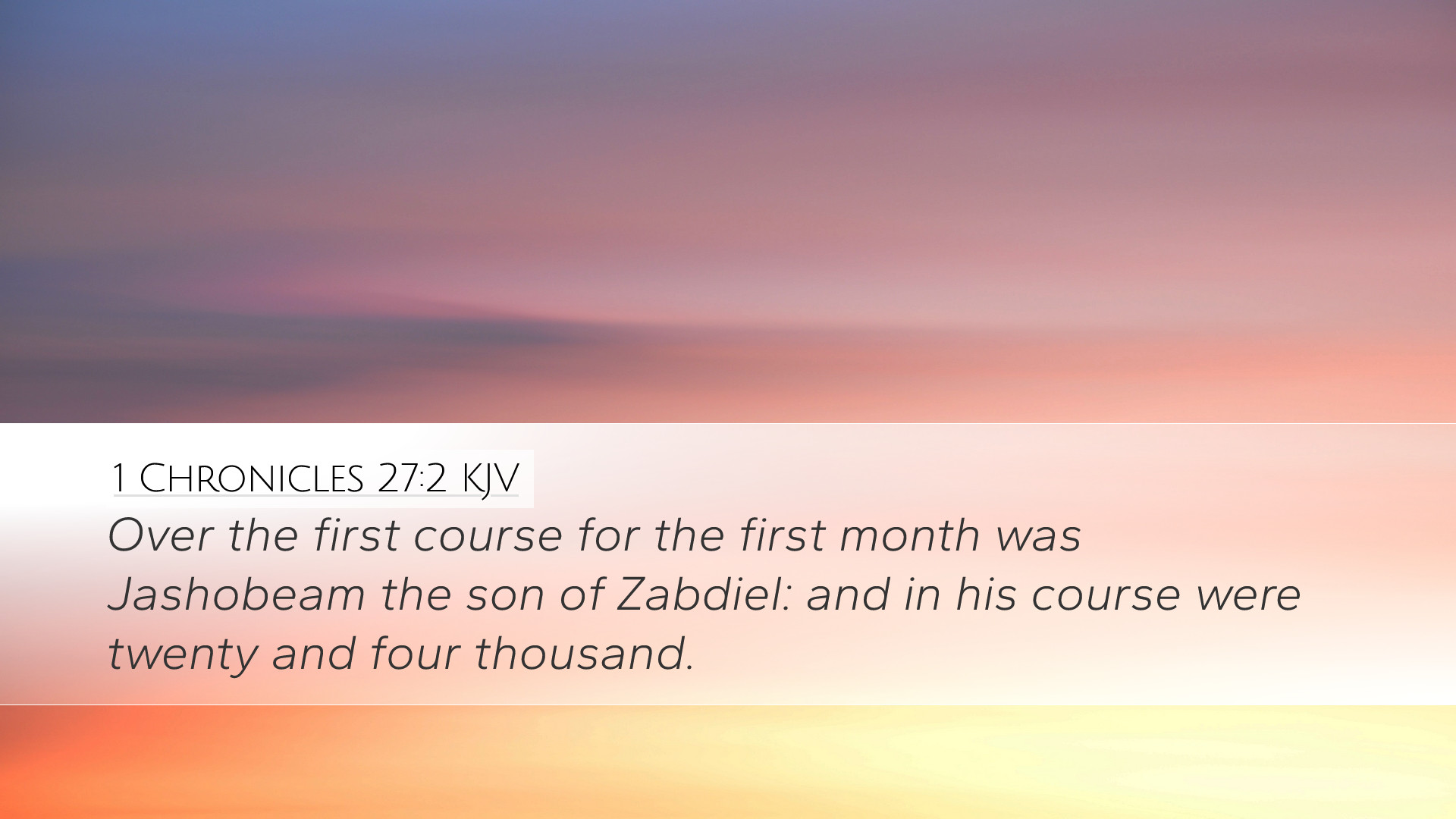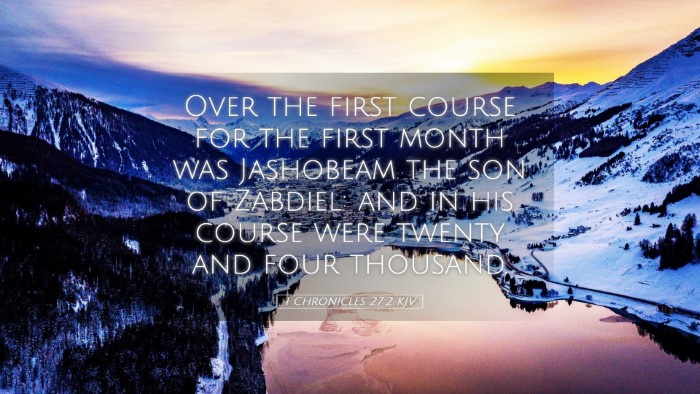Commentary on 1 Chronicles 27:2
Verse: "And over the second course, for the second month, was Dodai the Ahohite, and of his course were twelve thousand."
Introduction to 1 Chronicles 27
The 27th chapter of 1 Chronicles provides insight into the organization of King David's reign, specifically the administration of his army and the various officials that served under him. The verses highlight the importance of structure and order in governance.
Contextual Background
1 Chronicles was written to give the Israelites a sense of their heritage and God’s faithfulness. The genealogies throughout the book establish a foundation for the tribes of Israel, whilst the lists serve to show the strength and preparedness of David's kingdom.
Commentary Insights
-
Matthew Henry’s Perspective
Henry notes the significance of the military divisions and the monthly rotations that allowed for a well-maintained and ready army. He highlights the leadership of Dodai, stressing the importance of capable leaders in maintaining order during the reign of David. The reference to the second month marks a system where each month had its own leader, fostering accountability and discipline among the troops.
-
Albert Barnes’ Interpretation
Barnes emphasizes the role of Dodai as a leader over a significant number of troops, which illustrates David’s prudence in military matters. He suggests that the name "Dodai" may imply "beloved," thereby indicating that the leader was likely favored and respected among the people, contributing to the morale and unity in the army. This notion points to a theological implication that God’s chosen leaders would not only be equipped but also beloved in the communities they lead.
-
Adam Clarke’s Analysis
Clarke provides an analytical view, mentioning the strategic importance of such organization within the military structure of Israel. He highlights that 12,000 troops signify a sizeable force for any month, which reflects David's military strength and readiness during his reign. Clarke also notes the diversity in leadership, which could help in fostering a spirit of cooperation and shared responsibility among the tribes.
Theological Reflections
This verse encapsulates several spiritual themes, including the divine order in human governance, the value of leadership, and the need for community support in fulfilling God’s purposes.
- Divine Order: The organized structure reflects the character of God, who is a God of order. The appointment of leaders over successive months indicates a divine order that facilitates effective governance.
- Leadership: The significance of having respected leaders like Dodai serves to remind today’s pastors and leaders of their roles in community building and maintaining order, aligning with the biblical principle of servant leadership.
- Community and Cooperation: The concept of military courses represents collaboration among the tribes. It is a call for modern Christians to engage in teamwork, emphasizing that the Body of Christ functions effectively when working together.
Application for Today’s Readers
The intricate details provided in verses such as 1 Chronicles 27:2 serve as timely reminders for those in positions of authority and responsibility. It invites reflection upon the following:
-
Preparation and Readiness: Just as David arranged his military for readiness, leaders today must prepare and equip their teams for the challenges they may face. This involves training, mentorship, and fostering an atmosphere of trust.
-
Recognizing Local Leaders: Every community consists of various leaders. It is essential to recognize and empower these individuals who serve people effectively, much like Dodai did for his troops.
-
Collaboration and Unity: Today's church must focus on unity in diversity, embracing different roles within the Body of Christ, and working collaboratively toward a common goal of ministry and service.
Conclusion
1 Chronicles 27:2 serves as a vital piece of the larger picture of King David’s administration, illustrating the importance of structure, leadership, and cooperation. By taking heed of the lessons found in this verse, modern readers can reflect on their leadership roles, foster community engagement, and recognize the divine order that undergirds all effective leadership. May this insight challenge and inspire believers to walk in accordance with God's design and purpose.


